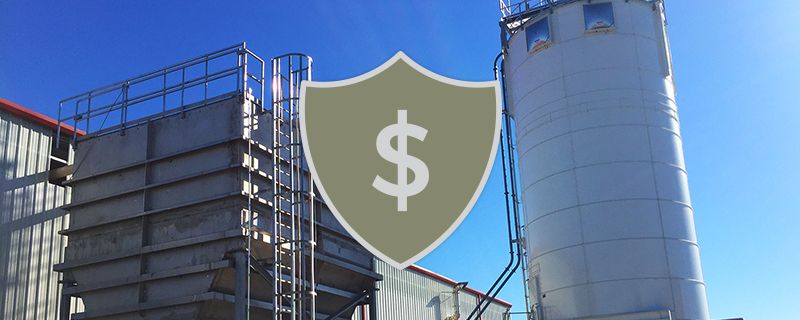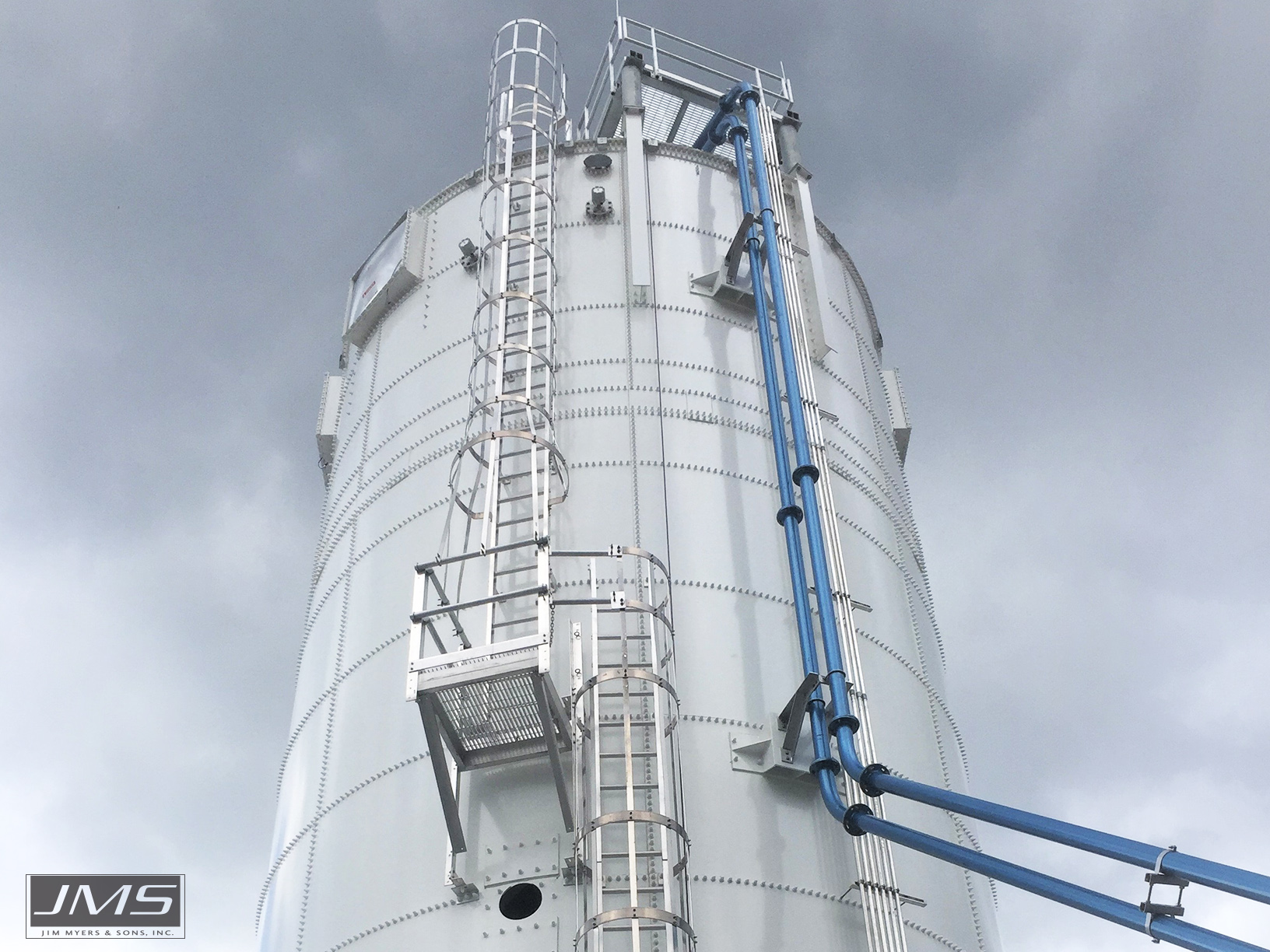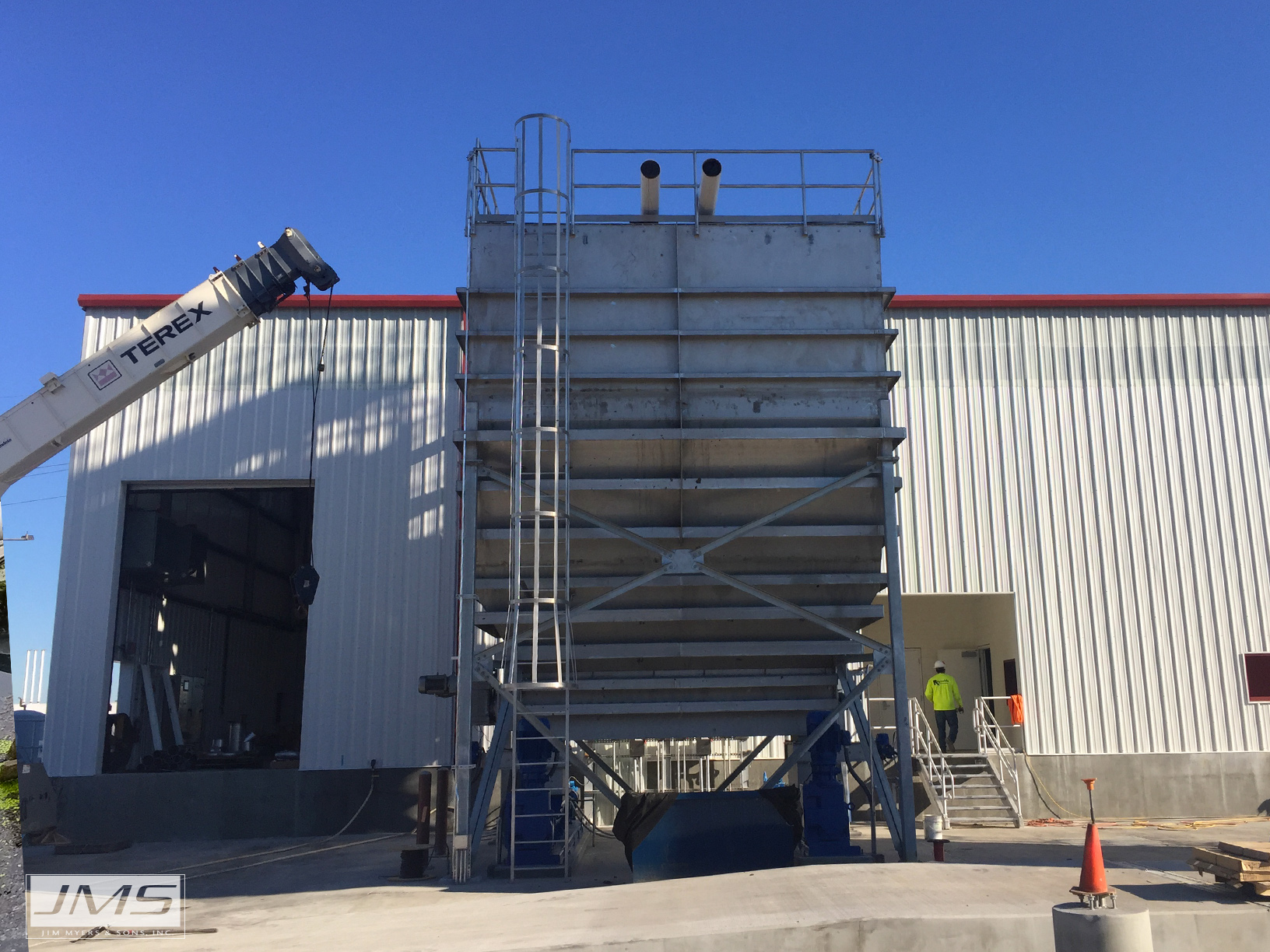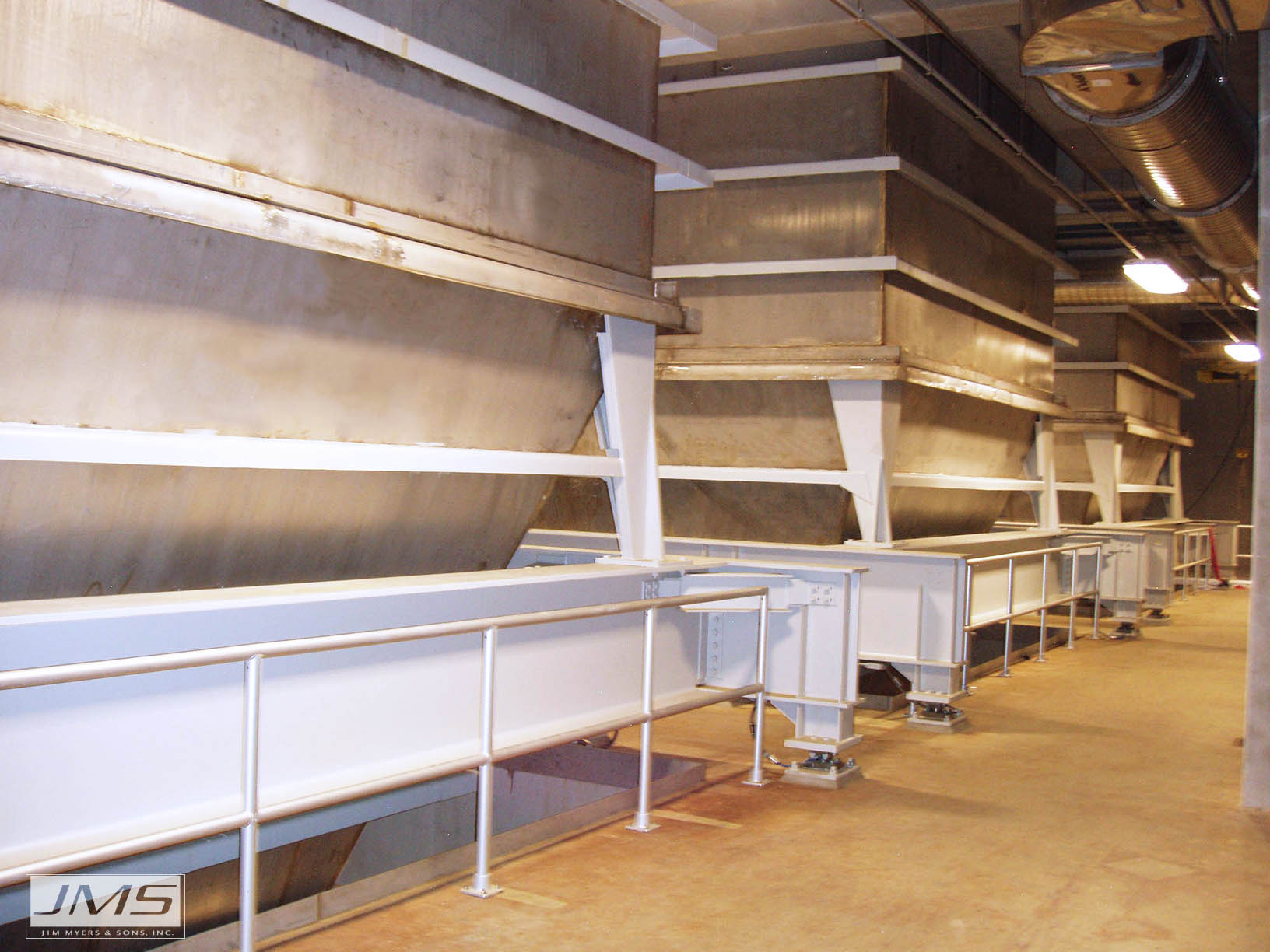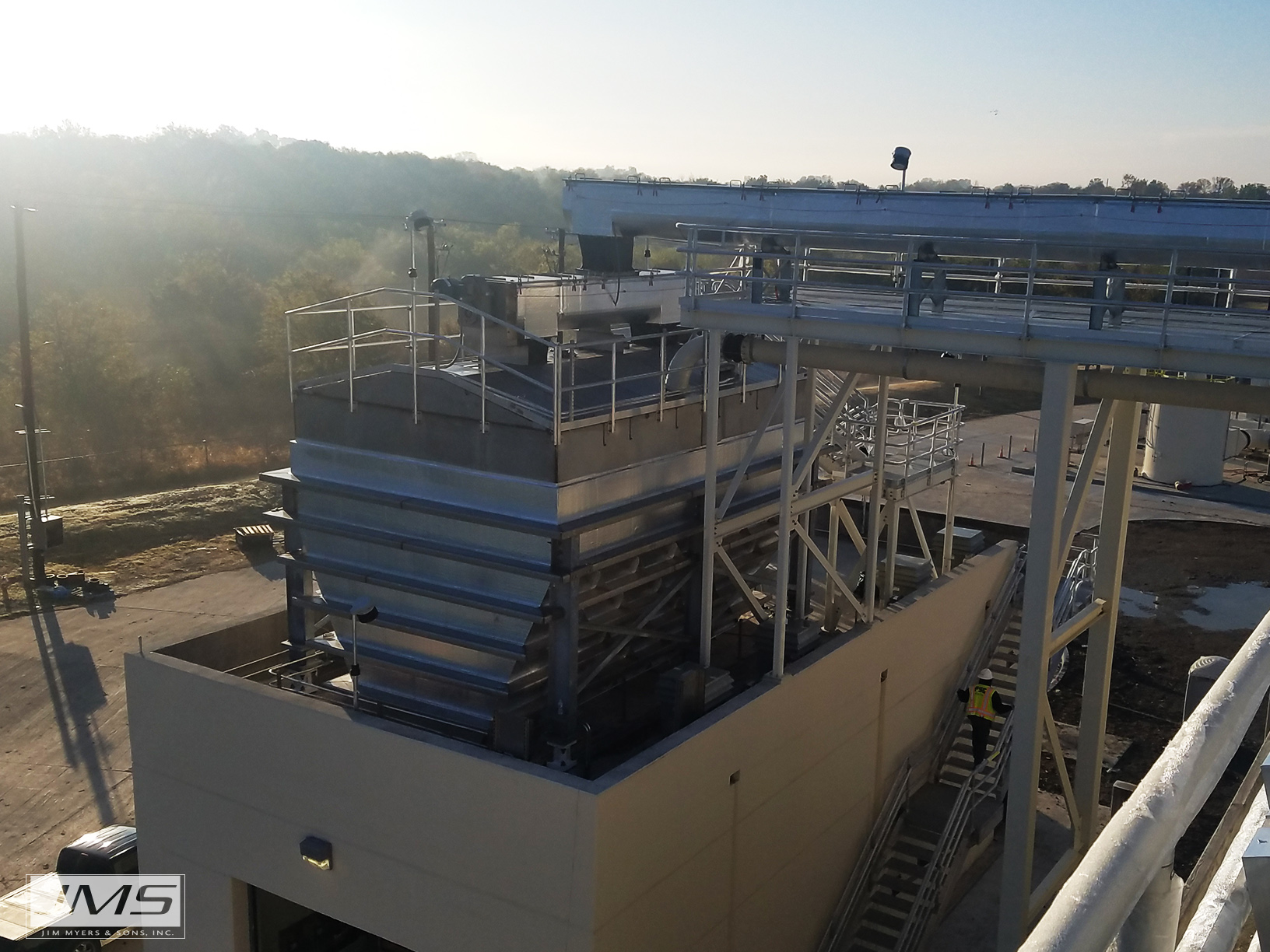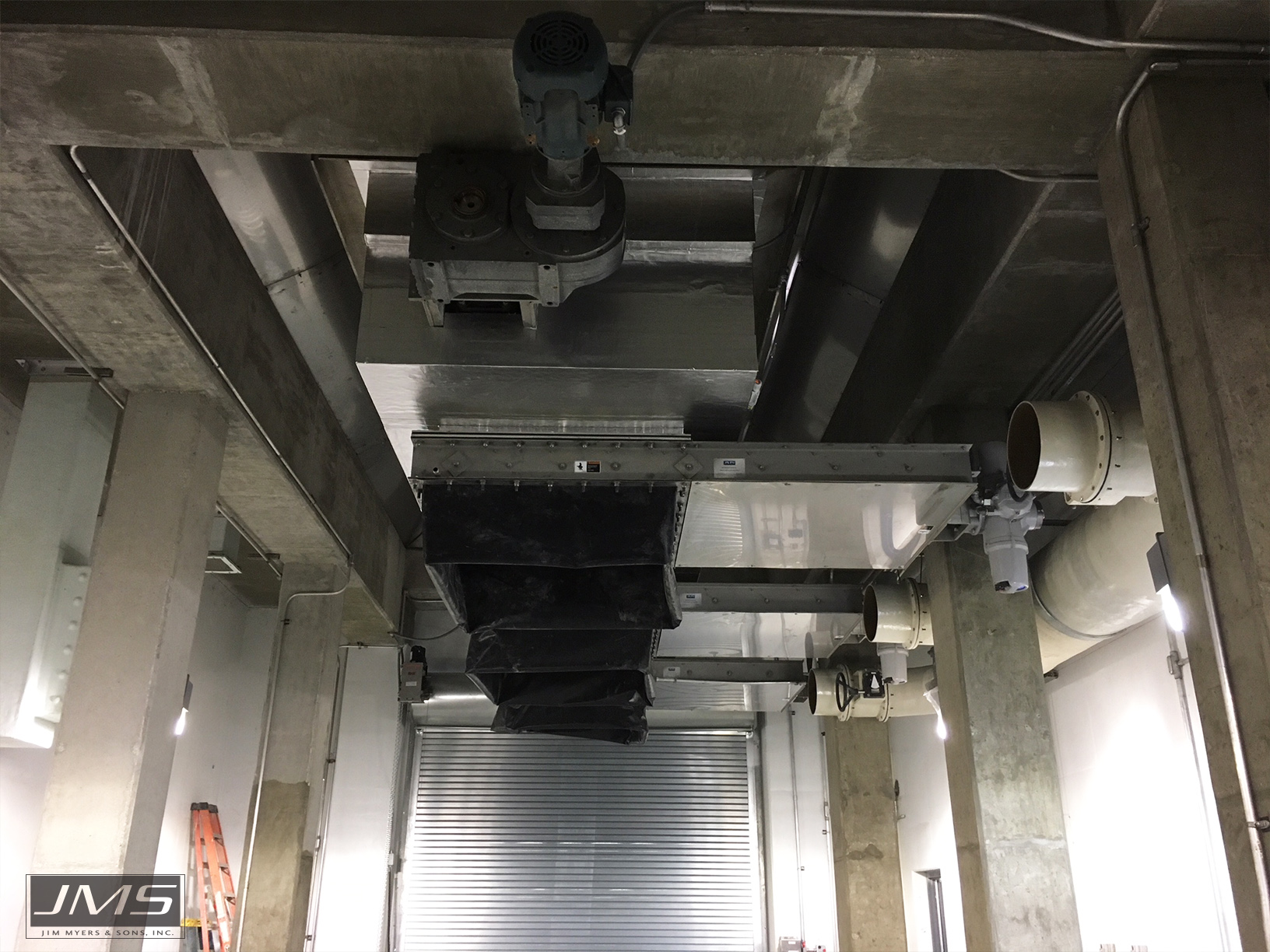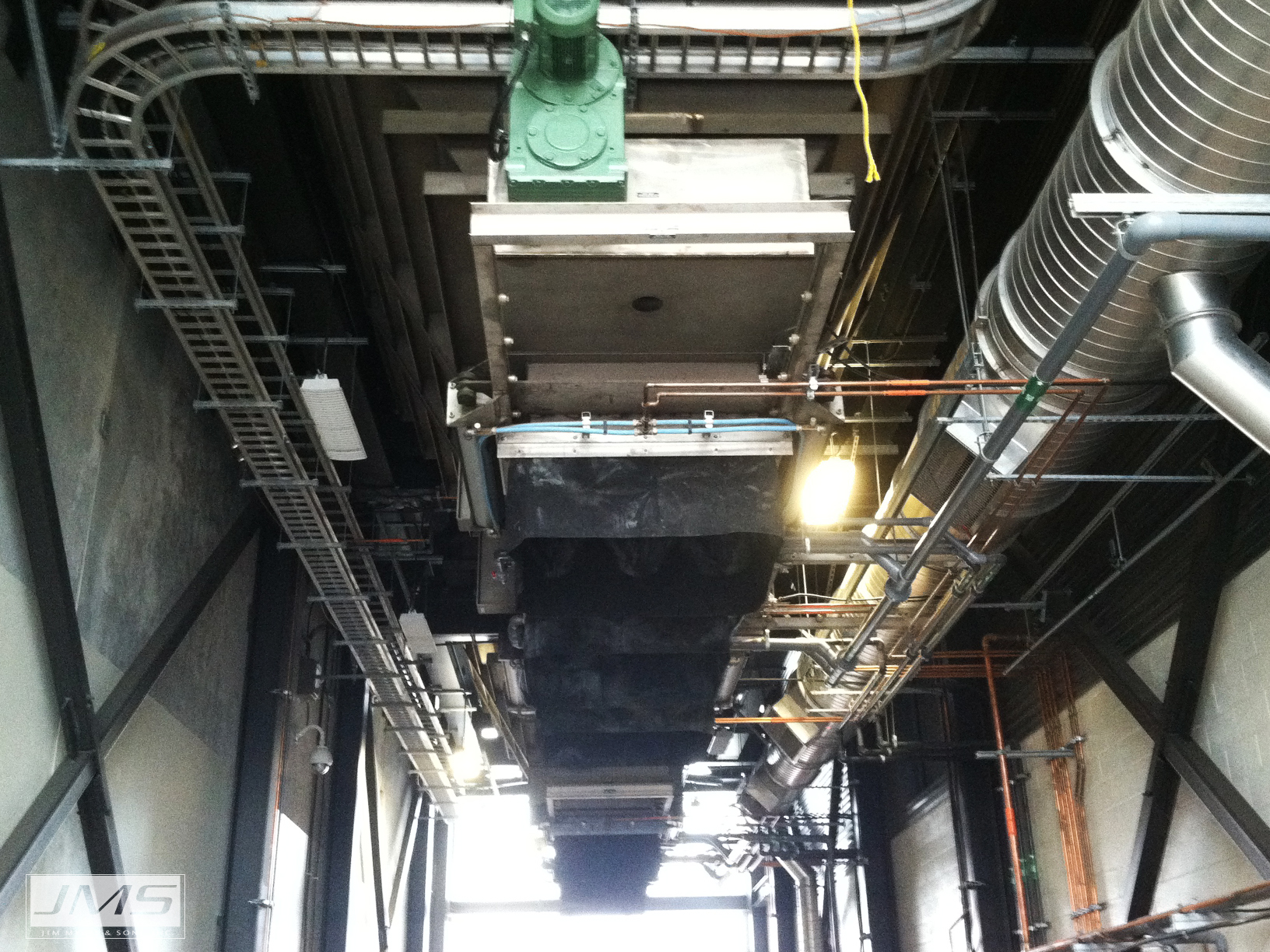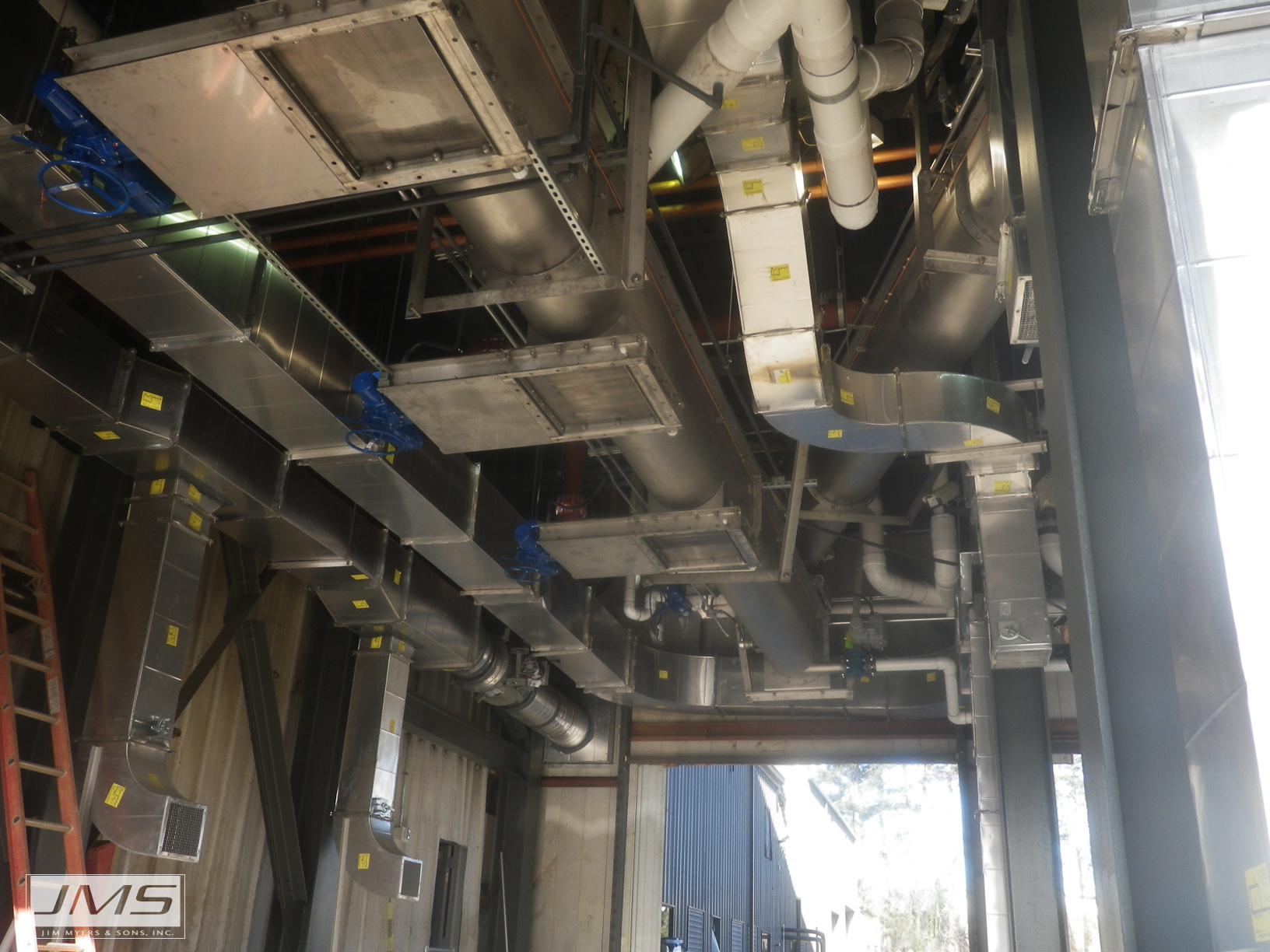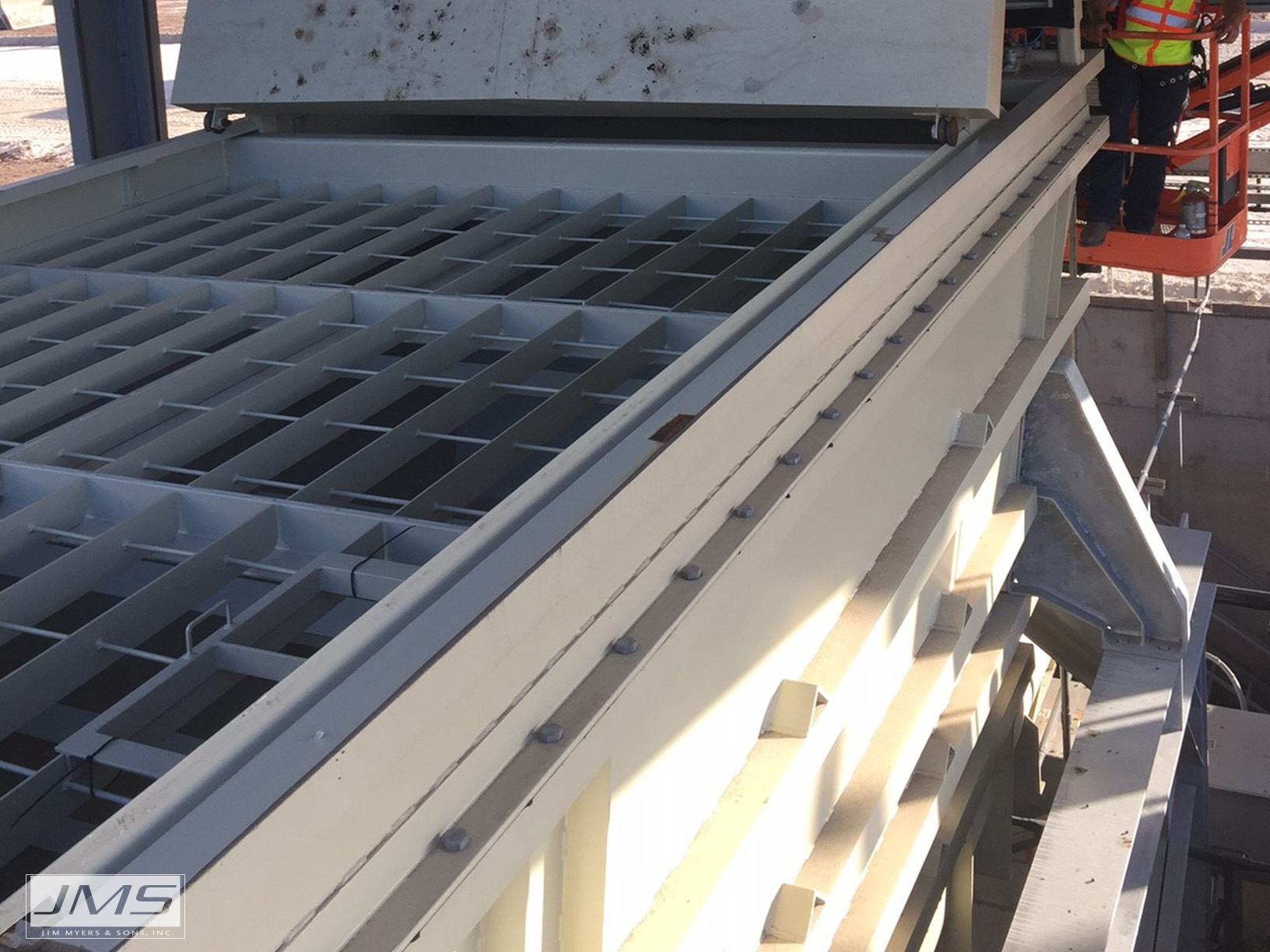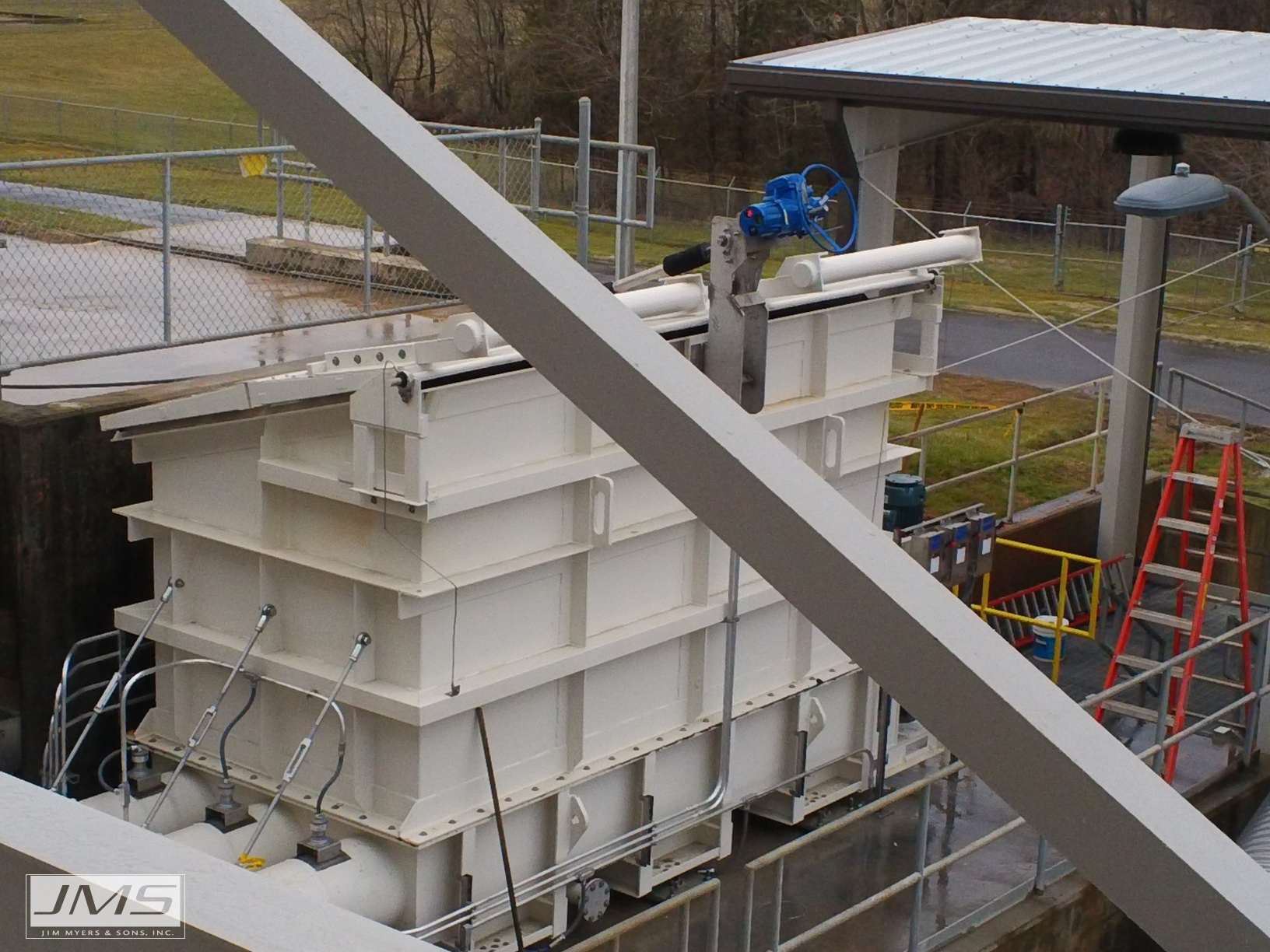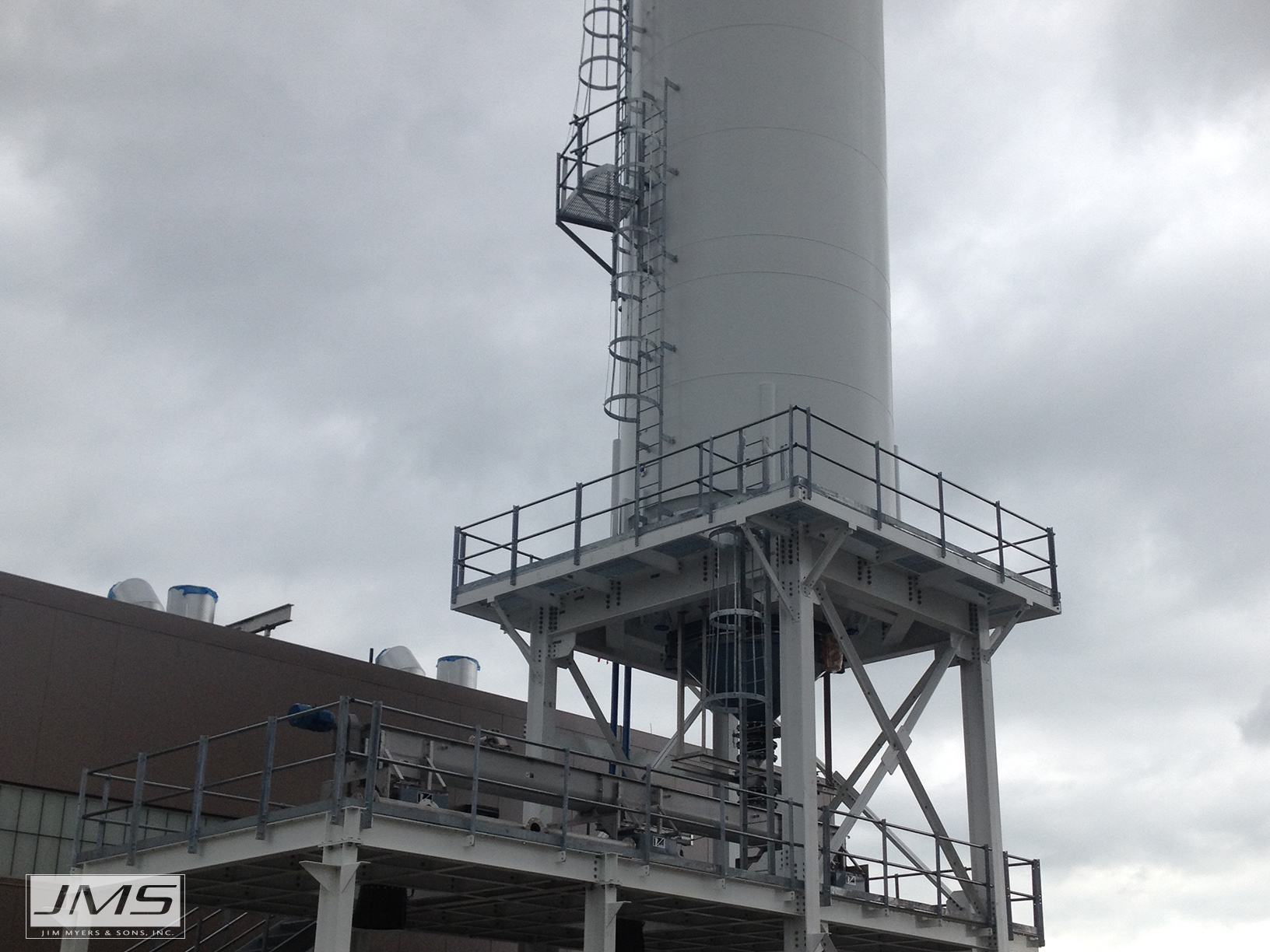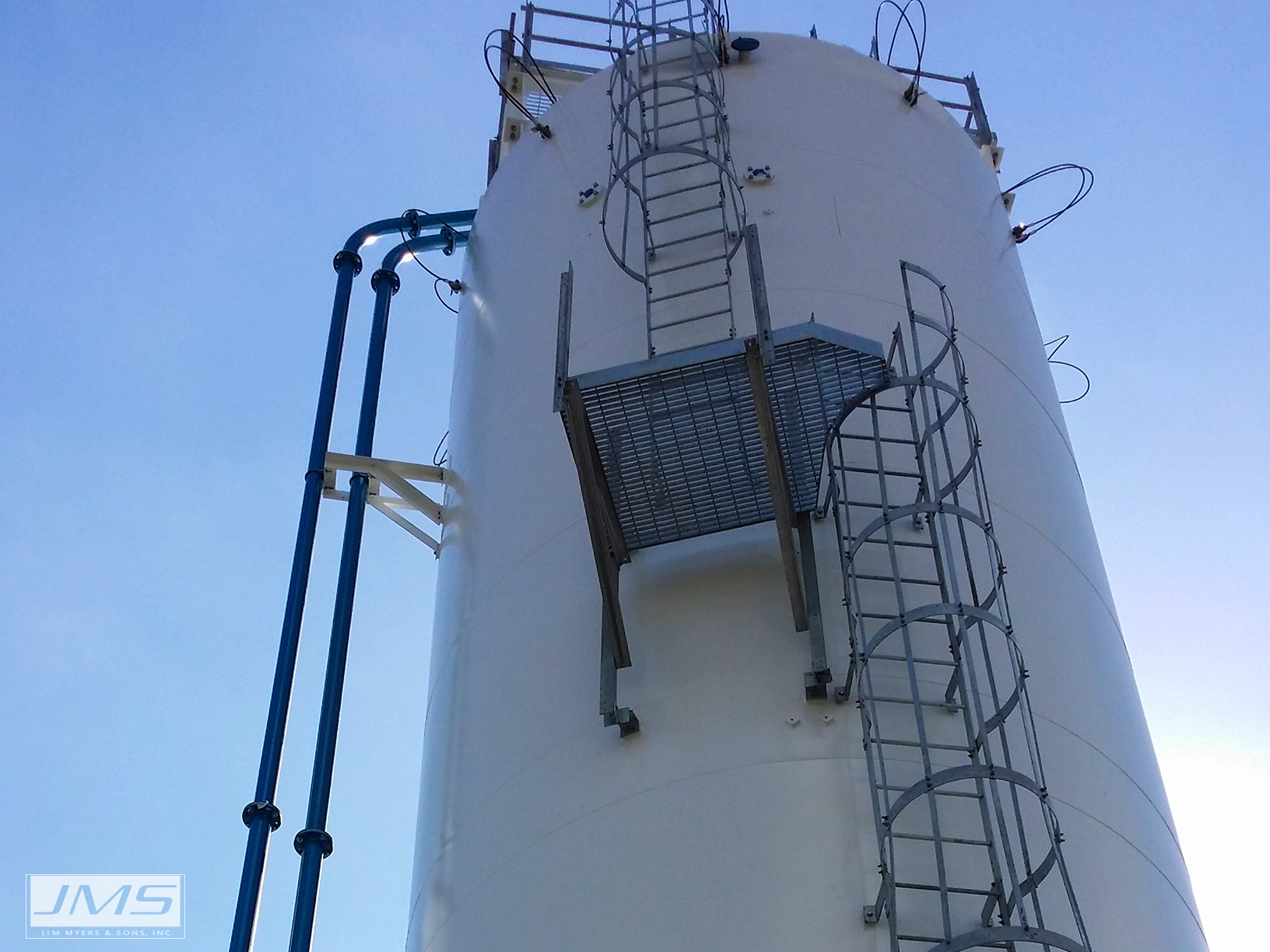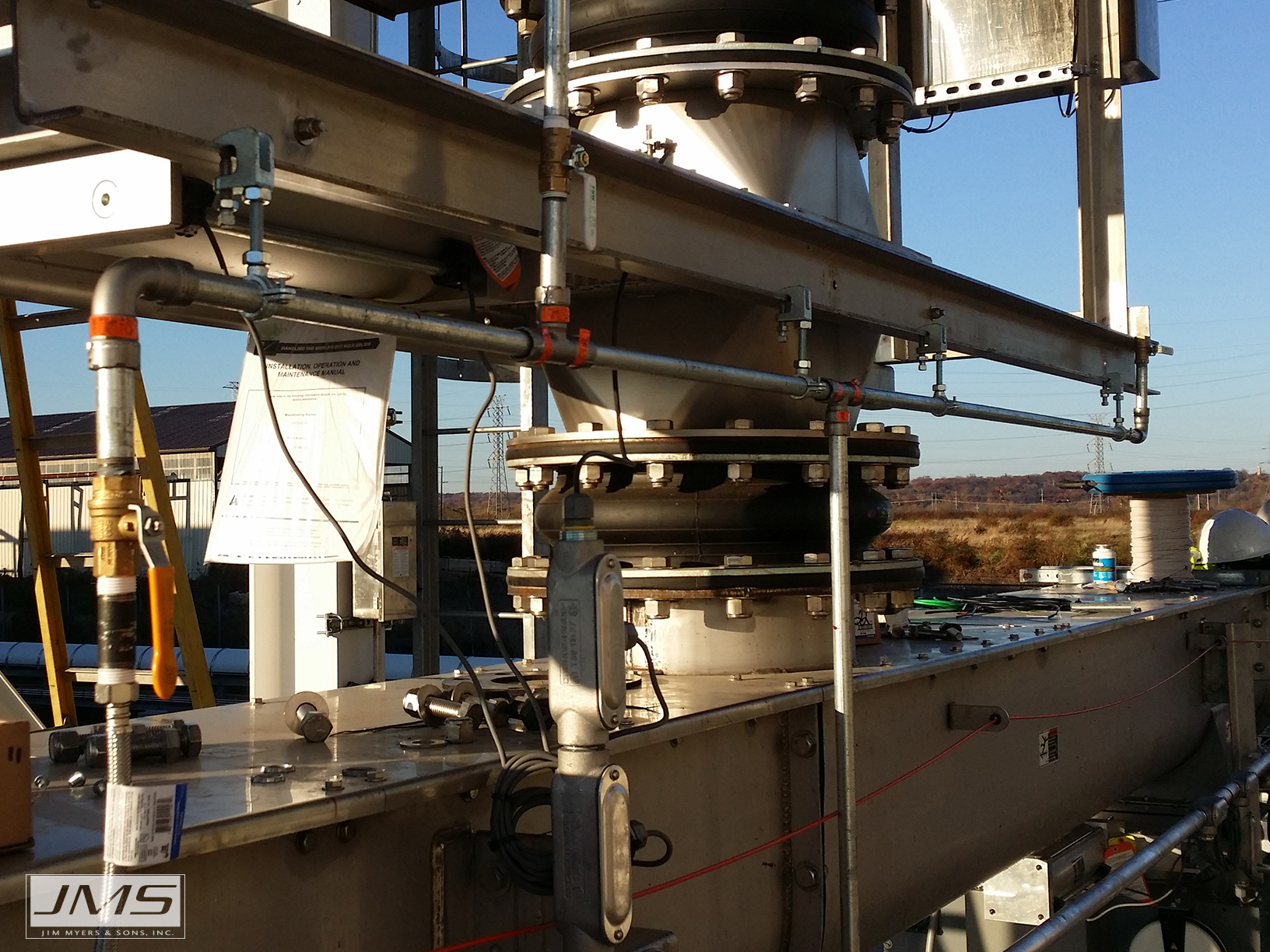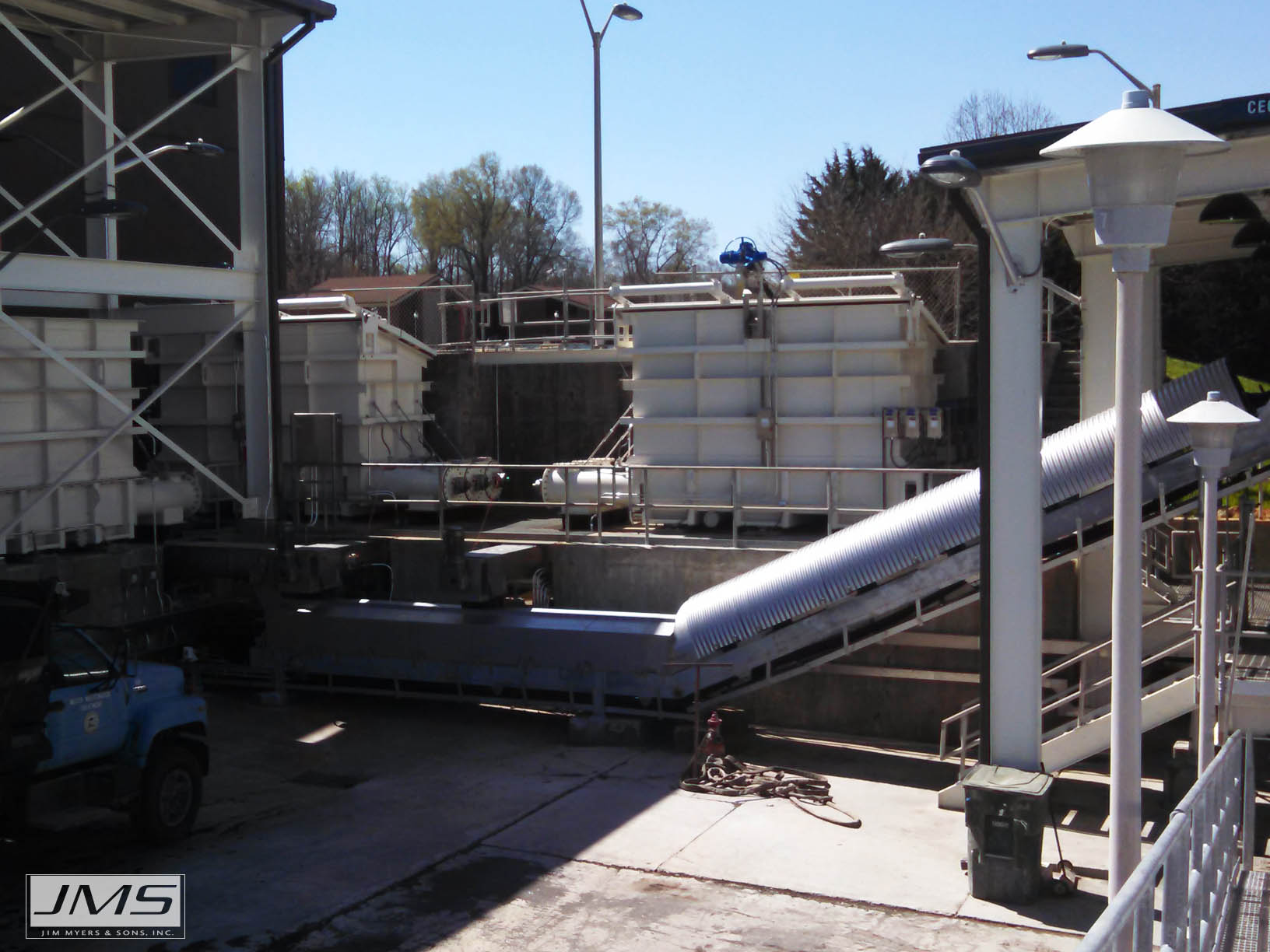Municipal Utilities are increasingly investing in automated material handling systems to solve simple to complex bio-solids management challenges. JMS Bio-HANDLING Systems utilize a combination of material handling products, processes and experience together to provide a cohesive material handling solution. Common JMS Bio-Handling Systems are: Truck Load Out Station, Receiving Station, Dried Bio-solid Systems, Bio-Hopper, Bio-Silo, and complete Lime Stabilization Systems. Often times multi-component Bio-HANDLING systems are needed to store, meter, and convey bio solids to downstream processes such as Incinerators, Thermal Dryers or to Thermal Hydrolysis Process. There are many variations on systems and conveyor distribution systems that are application specific. JMS Material handling systems can show a return on investment by saving labor costs, increasing plant operational efficiencies, reducing haul off costs and fees, or storing product for peak marketability.
Typical Cost of Material Handling Systems: Silos
Bio-Silo may be shop welded or site bolted. These are cylindrical tanks with conical bottoms used for free-flowing dried sludge with bin activators and air locks or live bottom screws for dewatered sludge. The cylindrical shape is the most economical per volume to manufacture but this shape is not as efficient for storage as a rectangular or square footprint.
The budget capital cost of a cylindrical silo vessel can vary from $50,000 for a small bolted silo to over $1,000,000 depending on the size, and materials of construction.
Typical Cost of Material Handling Systems: Hoppers
JMS Bio-Hoppers, rectangular or square typically for dewatered sludge are the most volume efficient for their footprint, but will usually cost more per cubic yard of usable volume. They may be painted carbon steel, however the vessel is frequently stainless steel due to stainless steel prices, coating costs and handling. Large stainless steel hoppers often utilize carbon steel painted vertical columns due to the limited availability of heavy stainless I beams and their cost.
Budget capital cost of a hopper with live bottom, can vary from $50,000 to over $1,000,000 depending on the size, materials of construction, and complexity of the system as defined in the project scope.
Typical Cost of Material Handling Systems: Truck Load Out Stations
Truck Load Out Stations classically use screw conveyors and open ended discharge points and/or slide gates to more efficiently fill trucks or bins. Other load station options are belt conveyors with plows, pedestal mounted pivoting conveyors, and automated shuttle or radial stacker conveyors.
A simple single screw conveyor with dual opposing open discharges and a reversing motor may be as little as $30,000 where a system capable of loading multiple trucks simultaneously may cost several hundred thousand dollars.
Typical Cost of Material Handling Systems: Receiving Stations
Receiving Stations are open top (retractable covers are optional) hoppers to receive foreign sludge trucked into regional plants. They are sized based on truck volume and desired storage capacity. Live bottom screws in the bin convey product to downstream processes.
Receiving stations are typically 25 – 75 cubic yards’ volume and budgeted from $75,000 up to $500,000.
Typical Cost of Material Handling Systems: Dried Bio-solids Systems
Dried Bio-solid Systems handle product downstream of thermal dryers by conveying (and optionally cooling), storing, then outloading to trucks. JMS has successfully designed and supplied these systems to deal with the combustion and self-heating properties of dried sewage sludge as well as meeting required NFPA (National Fire Protection Association) requirements for its transport. Includes dust collection, sensors, nitrogen blanket or purge and controls.
These systems start at $500,000.
Typical Cost of Material Handling Systems: Lime Stabilization
Lime Stabilization Systems treat dewatered bio-solids with lime to create class A or B sludge which is marketable for land application. The system includes lime storage and conveyance, bio-solids conveyance, a mixer, and downstream amended sludge material handling.
These systems start at $250,000. And range over $1,000,000. depending on product volume and level of automation.
Greg Hyde joined the JMS Sales and Marketing Team as Product Manager | Material Handling. Greg has over 30 years of experience in material handling systems, having held high level engineering, sales and business management positions with large full line conveyor manufacturers. He is responsible for overall support and growth of the JMS Bio-HANDLING product line. Outside of work, Greg is a founding member of the “Jammin’ 4 Water” (Water Charities Fundraising Inc.). In regards to his position, Greg says, “ JMS has a rich history in design, quality and material handling. I’m excited to be part of this great team and look forward to guiding the Bio-HANDLING product family for long-term growth.”
